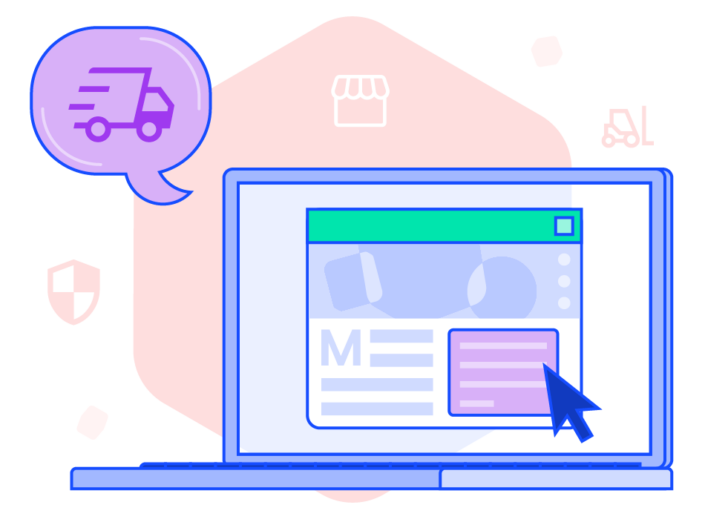Starting July 1, 2021, all shipments destined for the European Union (EU) will be subject to Value Added Tax (VAT) unless the Import One-Stop Shop (IOSS) is used. The IOSS is an electronic portal businesses can use to comply with their VAT ecommerce obligations on the sales of imported goods.
Who Will Be Affected?
If you classify as any of the following, this change will impact you:
- A business selling goods online across the EU
- An importer of low-value goods to the EU
- An online platform bringing together sellers and buyers of goods and/or services
You must prepare for changes that will take place for your business on July 1, 2021.
The IOSS facilitates the collection, declaration, and payment of VAT for sellers that are making sales of imported goods to buyers in the EU. The IOSS also makes the process easier for the buyer, who is only charged at the time of purchase, and therefore does not face any surprise fees when the goods are delivered. If the seller is not registered in the IOSS, the buyer has to pay the VAT and usually a customs clearance fee charged by the transporter.
You do not need to charge VAT on sales of goods in the following circumstances:
- You sell several goods to the same buyer, and these goods are shipped in a package amounting to more than EUR 150. These goods will be taxed at importation in the EU Member State (MSs).
- Your sales of goods are facilitated by an electronic interface such as a marketplace or platforms. In this situation, the electronic interface is responsible for the VAT that is due.
We can compare what are our current rules versus upcoming changes.
Current Rules
Under the current EU distance sales rules, intra-EU B2C sales are subject to VAT in the country of departure of goods until the sales exceed a local threshold in the EU MS where the customer is located. After breaching a local threshold (ranging from 35,000 euros ($42,000) to 100,000 euros) in this EU MS, an online retailer is obliged to VAT register, charge VAT of the EU MS of arrival, and remit the collected VAT to the tax authorities of the EU MSs.
Rules After July 1, 2021
As of July 1, 2021, all distance sales of goods will be taxed in the EU MS of arrival. The current thresholds will be abolished (see an exception for small EU businesses below). However, VAT registration in all those countries could be avoided if the VAT reporting takes place via the IOSS. If the IOSS is used, there will be no need to file VAT returns in all EU MSs where the VAT is due.
All B2C sales could be reported via a quarterly return to the tax authorities of a single (“own”) MS under the IOSS (so-called IOSS VAT return). The cross-border services to final customers residing in the EU (such as providing admission to events or services related to immovable property) could also be reported in the IOSS VAT return. B2B supplies cannot be reported via the IOSS.
New Threshold for EU Businesses
EU businesses established in only one EU MS may opt for taxation in the EU MS of departure if all their B2C sales of goods and digital (TBE) services in the EU do not exceed 10,000 euros per year. No threshold applies to non-EU businesses.
EasyPost is working with mail carriers that service the EU, and ironing out the technical specifics in what needs to be done to ensure our users can pass through all necessary data, to avoid any disruptions in their shipping operations. Learn more at our Tax Identifiers support page.
How Can You Register for the IOSS?
You can register businesses on the IOSS portal of any EU Member State. If businesses are not based in the EU, they will normally need to appoint an EU-established intermediary to fulfill their VAT obligations under IOSS. The IOSS registration is valid for all distance sales of imported goods to buyers in the EU. You can start using the IOSS only for the goods sold from July 1, 2021.




